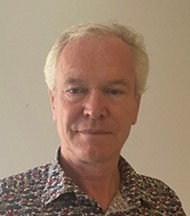Research Week - Academia, Industry and Society: What is the future of research work?
Title: Academia, Industry and Society: What is the future of research work?
Date: Friday, 4th November 2022
Time: 10am till 12pm
Venue: Parramatta Engineering Innovation Hub, Ground floor, 6 Hassell Street, Parramatta 2150
1) How can organisations adapt to sustain the long-term careers of researchers?
2) How can society participate as a true stakeholder in research, understand the ‘business of research’, and ultimately truly support an equitable research endeavour?
Responses were collected on Mentimeter and the panel discussed the answers by reflecting on their diverse experiences.
BIOGRAPHIES
Roshni Sharma Project Manager and Analyst frontiers.com.au |
She is an industry leader in the diversity, inclusion and equity space, and is making it her life’s work to harness location intelligence to create tangible positive change for society, creating real traction around sustainability and leveraging tech for good. Roshni loves dogs (but not cats), experimental cooking, and reads copiously at every opportunity. At FrontierSI, Roshni is at the forefront of the industry, bringing together cutting-edge innovation into useful applications for academia, industry and government. |
Industry Innovation Lead – Advanced Manufacturing Office of the DVC & VP (Research, Enterprise and International) Western Sydney University | Anders is a seasoned executive with decades of experience in leadership roles in innovation, commercialisation and cross-sector partnerships with major research institutes, industry and governments globally. As a comprehensive driver of commercialisation programs, he operates as the fulcrum between large-scale innovation initiatives and funding, integrating commercial developments with ground-breaking technology. He has broad experience in business development including leading global networks with public and private stakeholders fostering cooperation between public sector, industry, and academic research. |
Professor Graciela Metternicht Dean School of Science Western Sydney University |
Graciela’s past appointments include Regional Coordinator of Early Warning and Assessment of the UN Environment Programme (UNEP), Professor of Environmental Geography (UNSW Sydney), Professor of Geospatial Systems and Environmental Management (UniSA); Professor of Spatial Sciences (Curtin University). Graciela is the Chair of the NSW Biodiversity Conservation Advisory Panel and Chair of the National Committee for Geographical Sciences of the Australian Academy of Science. |
Lang Walker Chair in Urban Transformation Western Sydney University |
He has published extensively on innovation through Living Labs, circular economy and sharing solar energy. He has built one Living Lab in Sweden and one in Perth (Australia) which has attracted significant industry and society sponsorship. Greg is also on the Board and is a co-founder of Climate-KIC Australia which drives innovation and entrepreneurship in climate solutions in Australia. |
Professor Benjamin Smith |
Professor Ben Smith is an ecologist and ecosystem modeller interested in the role of population and community processes in the structural and functional dynamics of the world’s major ecosystem types, or biomes. He has developed widely-used tools for exploring responses of vegetation and ecosystems to drivers such as climate change, rising CO2 concentrations and land use. He is interested in the role of the biosphere in regional and global climate dynamics, using Earth system models to examine biogeochemical and biophysical feedbacks of ecosystem change to the atmosphere. Prof Smith retains a part-time affiliation with the Dept of Physical Geography and Ecosystem Science, Lund University, Sweden. |
Dr. Diana Karamacoska National Institute of Complementary Medicine Western Sydney University |
She partners with local governments, service providers, and community leaders to co-create, implement, and evaluate initiatives with and for culturally diverse older adults. Her latest project will see Canterbury-Bankstown established as a dementia-friendly community. |
A/Professor Alexie Papanicolaou STEM Cluster Industry Partnerships Academic Advisor Western Sydney University | A/Professor Alexie Papanicolaou blends the frontiers of molecular biology and computer science to secure Australia's agricultural and natural ecosystems in the face of a changing climate. He is a genome bioinformatician working on ecological and economically important species, such as the Heliconius butterflies, Helicoverpa armigera the cotton bollworm moth, invasive Tephritid fruit flies and eucalyptus trees. A/Professor Papanicolaou's main interest is developing bioinformatics capability to address evolutionary questions such as how organisms adapt to a changing or novel environment and therefore works on the crux of biosecurity, climate adaptation and evolutionary biology. Alexie joined the Institute in 2015 after previous positions in the CSIRO, the University of Exeter conducting his PhD research at the Max Planck Institute for Chemical Ecology. He currently splits his time between addressing evolutionary genomics questions, conduct genomic and geospatial data analysis and engineer new bioinformatic software. He has worked on a number of international genome consortia, is the leader of the i5k working group on Manual Curation and a coauthor of the Trinity RNA-Seq, the Just Annotate My Genome and others. |
Dr. Shanny Dyer External ARCS |
Shanny holds a PhD in Biochemistry and is a graduate of the Australian Institute of Company Directors. She is currently CEO of ARCS Australia, a professional organisation which focuses on career long professional development for its members in the therapeutic goods sector. ARCS provides education, competency building and information sharing within communities of practice, and targeted advocacy and collaboration with a range of stakeholders. Shanny is keen to get motivated and energised STEM students working in the Sector. |
Photo Gallery




Mobile options:


 Dr. Anders Hallgren
Dr. Anders Hallgren
 Professor Greg Morrison
Professor Greg Morrison



